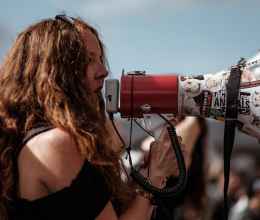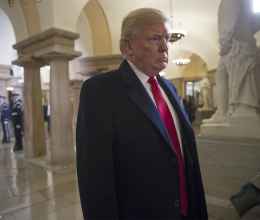
This week, students across Florida and the nation will flex their civic muscles, many of them for the first time. Many students will leave their classes to express concerns about ensuring a safe learning environment, the reasonable regulation of firearms and to commemorate the loss of 17 students and teachers last month at Marjory Stoneman Douglas High School in Parkland. We urge you to support them as they do so.
The greatness of this nation relies on the participation of all of us. You are in a unique position to foster this emerging democratic engagement and direct your students into productive action. The lessons learned this week, this month, this year will follow your students throughout their lives.
Please recognize this for what it is – a rare opportunity for an interactive lesson in participatory democracy. Keep in mind that you are not the first to face these decisions: you stand in the same shoes school administrators wore during civil rights movement – a movement that is today regarded as a model for teaching students about civic engagement. Reading about it pales in comparison to living it. So, please find ways to let them live it.
We understand the pressures you face – you work under many burdens: you have an education to transmit and you must keep students safe. But bear in mind, you cannot punish students for exercising their civil rights. Silencing the voices of your students just as they find them breeds the sort of cynicism that leads two thirds of our citizens to neglect their civic duty to exercise their right to vote. By not teaching them to engage in a healthy debate, you also risk furthering the divide in this nation that so painfully obstructs collaboration.
For many students, the tragedy at Parkland has awakened an American spirit of action. We ask that you resist suppressing that spirit. Instead, we urge that you lead your students to that ideal of the productive, involved, orderly exercise of citizenship. There are so many ways to accomplish this, such as:
- Allow students to attend demonstrations. School absentee policies in Florida allow for occasional absences and excused absences for religious education, doctors’ appointments and even educational family events. Attending a demonstration for part of a school day should be treated equally. Absence policies should not be used to punish students who are engaged in the educational experience of participatory democracy -- especially when the engagement is all about the need to ensure that they can pursue their education in a safe environment.
- Give clear guidance on expectations. Ensure that students know what is expected of them and what they can do to voice their opinion. Students should be allowed to peacefully demonstrate, distribute literature and wear any insignia of their protest, such as shirts. Schools may regulate this speech to prevent disruption of education, but keep in mind that this sort of discussion is education and the students’ ability to express their political viewpoints must be respected.
- Foster healthy debate. In today’s world, too often we are insulated from opposing viewpoints. This is a great opportunity to foster debate in an accepting environment. I urge you to use this opportunity as a teachable moment. You may want to consider setting aside time for assemblies or other events to consider the urgent issues of school safety that students across the country are now focused on. Teach your students what it means to peacefully exercise their First Amendment rights and to argue persuasively, which requires truly understanding opposing views and remaining respectful. And, of course, equally respect students who do not want to join demonstrations or who wish to oppose the most popular views.
The events planned for this week are a unique educational moment. We urge that you seize it.






